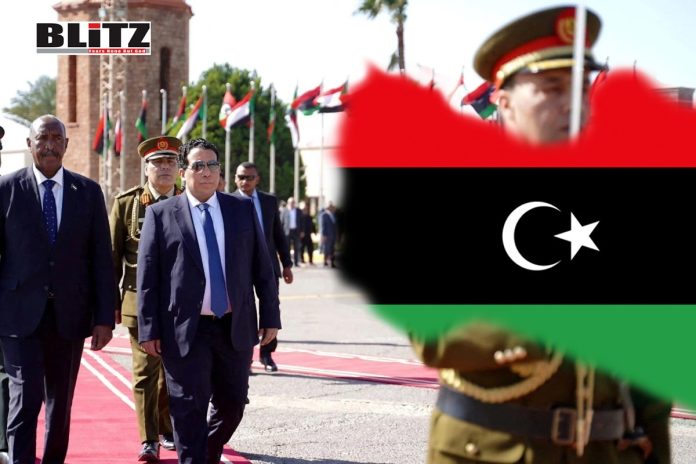The pursuit of stability in Libya has become a recurrent struggle for the global community, marked by a series of failed initiatives and unmet expectations. The upcoming Sirte National Reconciliation Summit, initially envisioned as a beacon of hope for peace and cohesion, now finds itself teetering on uncertainty. This event symbolizes the persistent challenges that have plagued previous efforts, including deep-seated divisions, external influences, and a populace fatigued by prolonged conflict. Despite its noble goals, the summit’s success hangs in the balance, reflecting the complexities inherent in Libyan politics.
It is increasingly evident that conventional diplomatic approaches have fallen short in navigating Libya’s intricate political landscape. As the country continues to grapple with internal strife and external interventions, there is a pressing need for innovative strategies that address the root causes of instability. Achieving lasting peace in Libya demands a departure from traditional paradigms and a concerted effort to engage with diverse stakeholders, including local communities, regional powers, and international actors, in a collaborative and inclusive manner. Only through such comprehensive and adaptive approaches can the global community hope to break free from the cycle of disappointment and pave a path towards sustainable peace in Libya.
The harsh reality cannot be ignored: successive interventions have failed to foster genuine reconciliation among Libya’s fractious political factions. The precarious state of the Sirte summit serves as a poignant reminder of this sobering truth. Yet, international stakeholders persist in their reliance on outdated methodologies, perpetuating the illusion of progress while exacerbating existing divisions within Libyan society.
The persistence of flawed approaches can be attributed to a fundamental misinterpretation of Libya’s internal dynamics and an overestimation of external influence. There remains a widespread misconception that external pressures alone possess the ability to reshape deeply entrenched political realities. This fallacious belief has contributed to the ongoing impasse, highlighting the need for a reassessment of strategies that take into account the complexity of Libya’s internal dynamics and the limitations of external leverage.
International actors consistently fall short in several critical aspects. First and foremost, there has been a glaring absence of meaningful efforts to address Libya’s fundamental security dilemma. With no robust central authority, competing factions prioritize self-preservation, perpetuating an alarming cycle of arms accumulation and sporadic violence. Militias have insinuated themselves into the fabric of the state, further fueling factionalism and impeding efforts towards peace and stability.
Furthermore, consociationalism proposals, which advocate for power-sharing among diverse groups, prove inadequate in the presence of widespread foreign interference. The intricate balance essential for consociational governance is disrupted as external actors support various local factions, intensifying volatility reminiscent of the aftermath of the Iraq invasion and the warlord conflicts in Afghanistan. In such a scenario, achieving consensus among Libyan factions becomes increasingly challenging, as external influences further entrench divisions and undermine efforts towards sustainable peace and stability.
Furthermore, the promotion of a market-based democracy in Libya without the presence of stable institutions only serves to exacerbate resource competition and foster rent-seeking behavior, mirroring the pitfalls observed in Mali. The misguided notion that a Western-style democracy can be transplanted onto Libyan soil overlooks the nation’s unique socio-political context and governance traditions.
The persistent discord between foreign interests and the authentic aspirations of the Libyan populace remains unabated. Frequently, conflicting foreign agendas prioritize immediate strategic advantages over the enduring welfare of Libyan citizens, exacerbating feelings of alienation and thwarting endeavors aimed at reinstating legitimacy to state institutions. This ongoing misalignment perpetuates a cycle of disenchantment, hindering progress towards fostering genuine stability and prosperity within Libya. Addressing this disparity necessitates a concerted commitment to prioritizing the long-term well-being and self-determination of the Libyan people above transient geopolitical objectives.
It is evident that a paradigm shift is long overdue. We must eschew top-down interventions and instead empower Libyan civil society to take the reins in the journey towards reconciliation. A grassroots-driven approach, bolstered by local institutions and community initiatives, represents the most viable pathway to constructing a durable and inclusive political order in Libya.
The precarious state of the Sirte summit serves as a stark reminder of the urgency of this transformation. Libyans must be afforded the agency to chart their own destiny, with the global community assuming a supportive role rather than dictating terms. Until we heed this lesson and recalibrate our approach, the cycle of failed initiatives will persist, perpetuating the elusive quest for peace within Libya.




